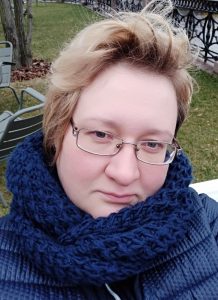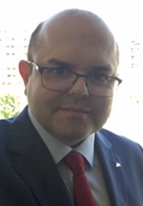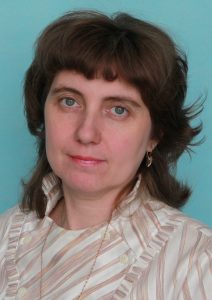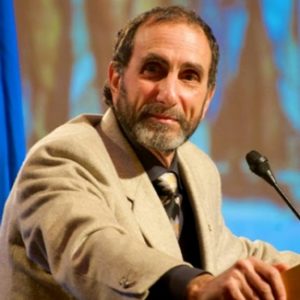 |
Lou Marinoff (USA) Professor of Philosophy, Dean of the Department of Philosophy, City College of New York , President of the American Association of Practical Philosophers (APPA) . Largely thanks to his efforts, the movement of philosophical practice became popular. A huge role in this was played by his best-selling book Plato, not prozac! Applying philosophy to everyday problems (1999), translated into many languages of the world. He is one of the most recognizable and readable authors in the world.
Humanities Therapy as a Remedy for Detriments of Technosociety Globalization and the digital revolution are transforming human civilization in unprecedented ways, in large measure via innovation as well as imposition of emergent technologies on growing numbers of consumers. While these transformations confer undeniable benefits to humanity, the benefits are bundled with a corresponding set of detriments. Lector does not contest the benefits, but confronts the detriments. It appeals to humanities therapy as a remedy for many of the cognate problems experienced by individuals and societies alike, problems that stem from overexposure to technologies and underexposure to humanities. |
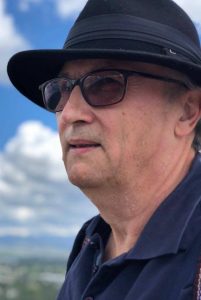 |
Oscar Brenifier (France) – PhD in Philosophy, philosopher-consultant, founder of the Institute of Practical Philosophy (Paris). He has been promoting philosophical practice for 25 years in more than 50 countries of the world. The author of more than 30 books for adults and children. He specializes in philosophical counseling, philosophy for children, philosophy in business, individual trainings on the development of thinking.
Accessibility as a value of morality and action. Demonstration of Philosophical Consultation (Lecture) As an ethical principle, Zhuangzi offers us the concept of accessibility. For him, being accessible goes beyond specific moral principles, for example, “not to lie” or “not to harm others,” which have only limited and indirect value, as we can observe this daily. The same applies to actions or communication, where the rules apply only in certain circumstances. For example, caution makes little sense in an urgent situation. Or courage, which turns into recklessness when the danger is too great. Accessibility is the ability to assess a situation and determine the type of adequate action or reaction. It involves the ability of the subject to distance himself, the ability to assess the situation and the plasticity of thinking.
|
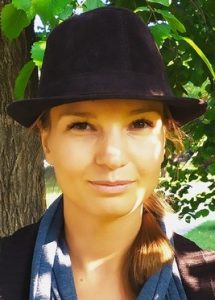
|
Regina Penner (Russia) – Ph.D., associate professor of the Department of Philosophy of the South Ural State University (Chelyabinsk), since 2016 has been actively involved in the international movement of philosophical practice, a member of several international schools and retreats on philosophical counseling and philosophical partnership, co-organizer project 4Self
Ekaterina Milyaeva (Russia) – Senior Lecturer, Department of Philosophy, South Ural State University (Chelyabinsk), co-organizer of the 4Self project The experience of philosophical meditation in the conditions of “self-isolation” during a pandemic The workshop will present methods of self-cultivation based on the methods of philosophical practice, combining the rational efforts of working on oneself with meditative methods of concentration and relaxation. The specificity of the method of philosophical practice proposed at the workshop — philosophical meditation — lies in the necessary appeal to the inner world, combining rational philosophical methods (understanding, analysis, interpretation of a philosophical text) with the methods of traditional meditative practices based on concentration of consciousness. |
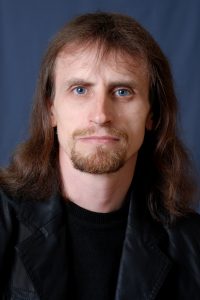 |
Sergey Borisov (Russia) – Doctor of Philosophy, Professor, Director of the Scientific and Educational Center for Practical and Applied Philosophy of the South Ural State University (Chelyabinsk), Head of the Department of Philosophy and Cultural Studies of the South Ural State Humanitarian Pedagogical University (Chelyabmsk), President of the Association of Philosophers practitioners “Ratio”, leader of philosophical cafe.
The birth of “deep philosophy” from the spirit of “onto-designing” (Lecture) The lecture outlines the basic principles of “deep philosophy” – one of the areas of modern philosophical practice. The author considers these principles in the context of the phenomenological model of “ontodesigning”. The author gives a detailed explanation of the main concepts of “deep philosophy”, such as “deep dimension”, “contemplation”, “personality”, “resonance”, etc. from the position of correlation of the ontic and ontological, the world of “in-itself” and the world of “for-itself.” Philosophy as a personal project (Workshop) The worldview function of philosophy is revealed by the author in the context of spiritual practices that develop the ability of self-knowledge. These practices are a condition for spiritual health and cultivate epistemic virtues. |
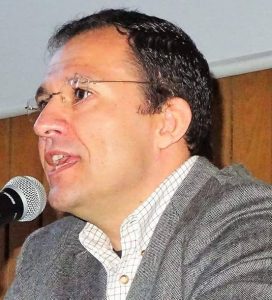
|
Jorge Humberto Dias (Portugal) – PhD in Moral Philosophy, Catholic University of Portugal, coordinator of the research line in Applied Philosophy and of the research project “Perspectives about happiness. Contributions to Portugal in the World Happiness Report (UN)”, director the Office PROJECT @ – Philosophical Consulting.
Tiago Gonçalves Pita (Portugal) – professor of Philosophy and Psychology in the pedagogical area of Baixo Alentejo / Alentejo Litoral, trainer and Chairman of the Board of the General Assembly of the Portuguese Association for Ethical Advice and Philosophy (APAEF) Evaluation of philosophical consultations in Portugal (Lecture) This communication will be carried out in partnership with my colleague Tiago Pita (Phd in psychology). In 2008 I created the PROJECT@ Office – a corporate brand for the business of philosophy consultations. In 2020, Tiago Pita and I decided to evaluate the work done in the consultations. For this, a Questionnaire was prepared, which the customers/clients answered at the end of the consultations. At this conference, we will present the results and open a space for debate with colleagues from other countries. Our goal is to publish a paper in an indexed academic journal. We have already contacted an international journal and informed it about our work and intention. We are aware that this is an innovative work, but also fundamental for the evolution of philosophical counselling as a discipline. Up to the present day, we do not know any work of the kind. |
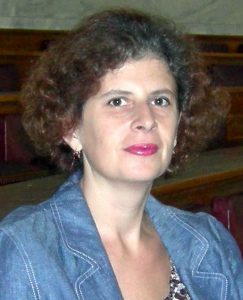 |
Naira Danielyan (Russia) – Doctor of Philosophy, Professor Department of Philosophy, Sociology and Political Science, National Research University “Moscow Institute of Electronic Technology”; the area of scientific interests is ontology and the theory of knowledge, the philosophy of science and technology.
Modern Philosophical Practice through Aristotle’s Ideas (Lecture) The author provides a comparative analysis of Aristotle’s epistemology and modern scientific ideas concerning the process of cognition. Following Aristotle’s ideas, we can state that he implied the separation of a researcher and an object examined. However, today it has been proved that subject and object determine each other and form an integrated system. The main feature of Aristotle’s epistemology was to get truthful knowledge. But nowadays the epistemological process is directed to the recognition of existence of different irreducible to each other positions that have been obtained during its realization. It is offered to consider the reality as a multi-layer and multi-level one. Knowledge of subjects about objects will be different for every level of cognition, but it will be interconnected. It’s possible to conclude that Aristotle made an enormous contribution to the formation and further development of epistemology and his works turned out to be the starting point for current ideas about cognitive operations, and their methods and results. |
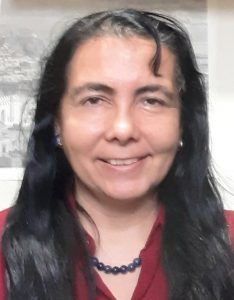 |
Carmen Zavala (Peru) – Doctor in Philosophy, San Marcos National University, founder The Philosophy Center Buho Rojo (Lima), leader a weekly Philosophical Café (since April 1998), implementator of philosophy websites and videos: Video Program Filosofía al Día, Videos about philosophical practice, The Agora Philosophical Practice website.
Why a Philosophical Café is a perfect setting for Philosophical Practice (Workshop) I will show why a philosophical café is the perfect setting for philosophical reflection. Mainstream scholars have been simplifying philosophy to an activity that is limited to reading and writing about philosophical issues, and it has to use clear concepts, because this eases argumentation. We should rather open ourselves to the reality of the 21st century, in which the audiovisual is already an accepted research document and allows us to better analyze all aspects of the activity of thinking that accompany a discourse. To do this, a well conducted Cafe Philo turns out to be an ideal platform for dealing with philosophical issues. The real challenge of philosophy is to reason with people the way they reason in everyday life, at school, on the street, with friends, with co-workers, in the market, in parliament, etc., and to be understood by them. At the end of the day, it is partly based on this type of reasoning that people make decisions in governments and in key positions in society, as well as in the relevant events of their personal lives. We are interested in reflecting on this way of thinking, which is mixed with a series of factors not expressed in language – because this is the way our thinking actually happens. To illustrate my point, I will show some scenes from our philosophical cafe on video for 3 to 5 minutes. |
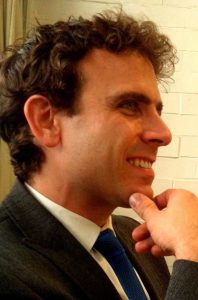 |
David Sumiacher (Argentina) – President of the Mexican Association of Philosophical Counseling; Vocal, Counselor and Teacher Educator by the Mexican Federation of Philosophy for Children. Is Director, Founder and Professor of CECAPFI (Centro Educativo para la Creación Autónoma en Prácticas Filosóficas). He was the organizer of the 15th International Conference on Philosophical Practice and was involved in different international research projects.
Philosophical practice with corporal actions (Lecture) In this article I will provide some elements and perspectives regarding how it’s possible to carry out philosophical practices through corporal actions. To understand this and to be able to do it out first, we must understand some general assumptions and principles around a broad understanding of philosophy and philosophical practice. After laying these foundations, I will focus on three great ways of performing corporal actions as part of the work that is done in philosophical practice. The first has to do with the sensory uptake of the other. In this way we enormously enrich the flow of elements that we use for working with others and the development of working hypotheses. A second type of corporal actions that we can incorporate into philosophical practice has to do with the performance of bodily actions by the practical philosopher. In this case, we use our action, gestures and expressions as a way of promoting, deepening and intensifying philosophical processes that are developed through dialogue or in any way. Lastly, a third way of including corporal actions in intersubjective philosophical interactions has to do with requesting the performance of specific corporal actions from others or performing them in conjunction with them. The variety of possibilities and achievable routes in this case is immense, but here we have an indisputable potential for philosophical work with others, which is built in principle from the grasp of circumstance and the philosophical process that is developing. In each case I will be considering a broad vision of philosophical practice that includes the work of philosophical counseling, philosophy for/with children, philosophical workshops and applied philosophy in organizations. Round table: On how philosophy and philosophical practice does have to do with the body, emotions and actions in the world Abstract: For a long time and in many areas, philosophy (and also philosophical practice), operated under the framework of a reduced conception of rationality, excluding most of the areas of life of the subjects. Its transformational power, its enormous strength and impetus, was reduced to the areas of language, consciousness and discourse that, without denying its value, are only one of its possibilities. Although on many occasions he has tried to “touch the lives” of the subjects through these valid means, it is something similar to a doctor taking away all his instruments and leaving him only the stethoscope or the scalpel. Is trying to wear a suit too small. Prejudices or fears in relation to psychology (a discipline that has been part of philosophy for thousands of years) are part of this same problem. All this does not mean that philosophical processes cannot be distinguished from other types of processes (accidental, superficial, non-philosophical, etc.). It means that the 21st century philosopher can explore the battery of resources that effectively provides the history of philosophy in Socrates, Hellenistic philosophy, phenomenology or Eastern philosophy, among others. Here I will address some elements to, even having such a broad conception of our work, draw a criterion of distinction and build new serious, meaningful and well-founded philosophical practices. Workshop: Philosophical practices with corporal actions Abstract: Even when a workshop is carried out through internet, it is possible to develop philosophical practices with corporal actions. These kinds of possibilities have been explored through CECAPFI in the last eight years. The following workshop will show how the realization of such applications is possible. In addition, generate a practical foundation regarding the value and importance of corporal actions as part of the work and tools that the practical philosopher possesses for the development of his discipline, be it in philosophical counseling, philosophy for/with children, workshops or philosophical-cafes and philosophy for organizations. Panel discussion: The body and philosophical practice Abstract: The possibilities of philosophical practice are endless. Most of the 20th century philosophers have advocated for the value and importance of the body in relation with conceptions that obviated it, reduced it, fragmented it or left it in the background. This panel will explore the value of corporality from different perspectives. Each of the invited speakers has forms and approaches to work of philosophical practice that include it in different ways. Here you can learn something about their approaches, as well as the elements they have in common. Moderator: David Sumiacher Invited speakers: Lydia Amir, José Barrientos-Rastrojo, Guro Hansen Helskog, Narelle Arcidiacono Book presentation: Philosophy in motion. State and situation of philosophical practices in the world Abstract: Philosophical practice is a dynamic and diverse international activity and movement. This book aims to explores its “state of the art”. It focuses on the following branches: philosophy for/with children, philosophical counseling, teaching of philosophy, philosophical practice in prisons, philosophical practices with indigenous people and original communities, philosophical practices in health care, the divulgation of philosophy, philosophical workshops and cafes, philosophy in organizations, bibliography (books and journals) as well as the activities of philosophical practice in universities. The book has joint 20 authors from 10 different countries. They have explored main authors, trends, schools, materials, procedures and projects in our field. We will deploy how the project was developed and its quest, its obstacles, its expected future. Project Presentation: ICPP Website Abstract: The ICPP movement, since 1994, has a very valuable track record. The 16 Conferences held speak of an extremely important interest and continuity in the development of the discipline. Beyond the great value that holding these important events has had, for the general public there is no space where this information can be obtained. On many occasions, people try to know the programs, objectives, proceedings or videos linked to the movement, but there is no space that accounts for the continuity of this effort and great work carried out. For this reason, on this Website the organizers of the conferences held in Vancouver, Leusden, New York, Bensberg, Oxford, Oslo, Copenhagen, Seville, Carloforte, Leusden, Chuncheon, Athens, Belgrade, Bern and Mexico report this, favoring thus the involvement of more people, both in events and in the movement of philosophical practice. |
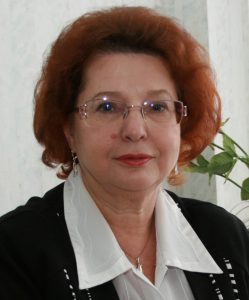
|
Lyudmila Belyaeva (Russia) – Doctor of Philosophy, Professor, Department of Philosophy, Sociology, Cultural Studies; Ural State Pedagogical University (Ekaterinburg)
Irina Chugaeva (Russia) – candidate of pedagogical sciences, associate professor of the department of pedagogy and psychology of childhood; Ural State Pedagogical University (Ekaterinburg) Philosophical and communicative practices as technologies for the search for personal identity in the educational process (workshop) In modern society, there is an increase in the proportion of young people who express alienation, negativity to current events, unwillingness to communicate, misunderstanding, and rejection of other people. These manifestations are associated with the loss of value-semantic guidelines, a crisis of personal identity. In the context of value pluralism, young people need existential experience as a search for the meaning of existence, building a strategy for their own lives. Adolescents can get such an experience in the process of value-semantic perception of art as an experience of an artistic image through dialogue with the author, the hero of an artwork, value-semantic modeling of their worldview and attitude. We consider this process as philosophical and communicative practices, since it is associated with the active activity of the subject, his ability to rise over the ordinariness of being in order to understand the life of the Other, to comprehend various life situations, to relate to oneself. Philosophical and communicative practices based on a hermeneutic approach make it possible to use a work of art as a discourse that, in the process of communicating with the author’s meaning, facilitates the discovery of personal meaning in the phenomena of cultural life. Philosophical and communicative practices of searching for personal identity they are implemented on the basis of the technology we have developed to activate value-semantic relations, the starting point of which is the adolescent’s desire to find the answer to the question “Who am I?”, which ultimately means the search for the truth of one’s being. We single out a complex of such relations, which are based on the Socratic dialogue as a method of philosophical practice. This technology contributes to the acquisition by a young man of a personal identity, which, turning into a practice of caring for himself, characterizes him as an active, responsible subject, capable of self-knowledge, self-understanding, valuable self-determination and creative self-expression. |
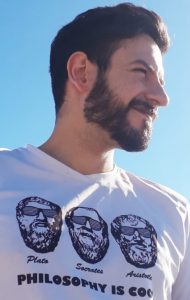 |
Federico Emmanuel Mana (Argentina) – Adjunt Professor, Facultad de Humanidades, Universidad Nacional de Mar del Plata / Universidad Nacional de Lanús
The method: an inevitable bridge in philosophical counselling (workshop) What is the difference between a “philosophical counsellor” and a “traditional philosopher”? Firstly, we must say that while the “traditional philosopher” developed a theoretical and academic life, the “philosophical counsellor” looks forward to apply the theory in different ways, actions and events. Nevertheless, this distinction is a little bit abstract and weak because “philosophical counselling” is not a concept that takes a definition with the simple act of using it. Therefore, the hypothesis here presented will be a short exposition of a doctoral thesis in progress: applied philosophy means to work with a method that functions like a bridge between two points: departure and arrival. Which are these points? Departure: the preconceptions of each philosopher regarding humanity, existence, happiness, etc. Arrival: their objectives in the field of counselling. That is to say, the philosophical practitioner should outline the theory like the “traditional” one and also outline the strategies for such theories to have an impact in people’s lives. This way to conceive philosophical counselling will guide us to take a position in an always open discussion in this discipline: the application or not of a method. The point of this lecture will be exploring the idea that the use of a method is inevitable if we want to develop philosophical counselling because we need a strategy to build a bridge between our theory that will sustain our work along with our goals to achieve in our practice. Void and fiction: a new methodological approach for philosophical counselling (Presentation) A doctoral thesis, like all research work, is a slow process that is carried out in steps, some forwards, others backwards. For this reason, what will be presented here are some partial conclusions of my own research about the possibility of a new methodological approach for philosophical counselling. It is hoped to open the debate with the rest of the colleagues on a new way: thinking of doing philosophical counselling taking into account the concepts of “fiction” and “void”. For this I propose the existence of dialectic: void emerges when there is a rupture of meanings. The void generates rejection in the people who seek to fill it quickly. This is how fiction emerges as a discursive structure that presents a reality from the “as if”. This makes the uncertain become familiar, the void quickly filled. But what if these fictions generate existential conflicts? This is the question that motivates this methodological approach. |
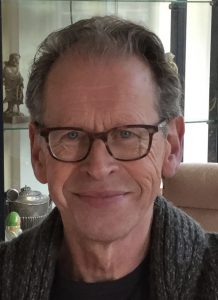 |
Leon de Haas (The Netherlands) – Master philosophy, philosophy teacher, researcher, author, coach, and trainer in philosophical practice, editor Philosophical Practice of the Dutch-Flemish Journal Philosophy, project manager 10th ICCP at Leusden (The Netherlands), member of the board of the German Berufsverband für Philosophische Praxis.
A Contemporary Socrates (Lecture) Some of the key features of Socrates’ interventions in Plato’s early dialogues are at the heart of all philosophical practice. Socrates’ philosophy was performative, consisting of meetings somewhere sometime with one or more interlocutors on a topic that at least one of the interlocutors was greatly concerned about. He intervened in questions or statements made by his interlocutors by questioning concept definitions. In this lecture I examine the question to what extent the philosophical practice of the classical Socrates needs change on the basis of contemporary philosophy. We focus on the consequences of the phenomenological and linguistic turns for Socratic practice. In this research we use the idea of ‘conceptual persona’ of Deleuze & Guattari. In this way we get an impression of a contemporary Socrates. The lecture is illustrated with mind maps and images and is followed by a discussion with the participants in the online conference. |
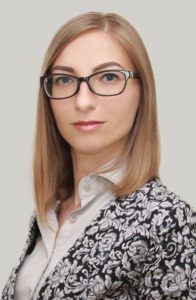 |
Nadzeya Ilyushenka (Belarus) – Researcher of Knowledge Мanagement Centre at Institute of Philosophy of the National Academy of Sciences of Belarus. Co-executor of the project “Philosophical Counseling: Methodological Foundations, Principles of Implementation and Development Prospects in the Republic of Belarus” (2014-2016), co-executor of the project “Philosophy in the structure of innovative technologies of school education: conceptual foundations, methodological tools, development prospects in the Republic of Belarus” (2018-2020).
Philosophical language learning as a means of independent thinking development (Lecture) The lecture is in the thematic field of the conference, designated as Philosophy for Children. The lecture will examine the specifics of the philosophical language. The basic linguistic tools have been explicated and described, allowing expanding the usual descriptions of the world, to achieve expression of non-trivial philosophical intuitions, to outline the main directions of philosophical search. Particular attention will be paid to such techniques as the use of metaphors, tautologies (a vicious circle in the definition) in philosophical texts, as well as step-by-step, gradual refinement of thought by introducing the so-called “operational concepts.” In conclusion, we will give an example of the study of the language of philosophy in the framework of the program of additional education for children and adolescents “Green Sun” (team of authors: N. S. Ilyushenko, N. A. Kutuzova, D. Kutuzov, O. I. Davydik). |
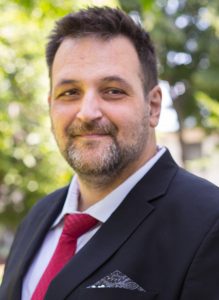 |
Antonio Sandu (Romania) – Prof., PhD, Faculty of Law and Administrative Sciences, “Stefan cel Mare” University (Suceava); LUMEN Research Center in Social and Humanistic (Iasi). His main areas of interest include ethics, bioethics, sociology, social work and social philosophy, public administration. He analyses the social construction of reality by developing his very own version of social constructionism operating at the crossroad between the social-constructionist paradigm and the theory of communicative action. He studied the interpretative adrift of ethical concepts such as ethical acceptability and ethical values. He also conducted research in autonomy and informed consent in medical ethics and public health ethics. He is also interested in transhuman and posthuman changes in human condition due to the virtualisation of social space.
Philosophical Practice in Times of Pandemic (Lecture) The medicalization of society practically represents the effect of the society of risk, of the fact that the society is more easily aware of the various risks that individuals feel threatened about. A pandemic causes the whole society to be restricted, social activity to be shrinked. This is possible in the context of a medicalized society, which brings with it a lifestyle based on a sometimes exaggerated care for the health condition, healthy lifestyles, bio lifestyles and so on, which are imposing precisely on our fear of losing our comfort and health, in the context in which we are more aware of the risk to which we are exposed by various elements of daily life. Many of these efforts prove to be superficial, and to be aware of the ways in which these daily risks to health actually impact our life, can be achieved through ethical counseling and philosophical counseling. This changes the approach to philosophy and creates a relative incompatibility of fundamental themes of contemporary philosophy with the everyday intellectual concerns of the potential readers of philosophy. Experiential Approach and Non-Dualistic Meditation in Philosophical Practice (Lecture)The theoretical foundation of experiential psychotherapy originates in philosophy, more precisely in that of phenomenological and existentialist orientation. The mentioned philosophical perspectives were operationalized from a psychotherapeutic point of view by psychologists who belong to the current of humanistic psychology. The experiential perspective includes meditative experiences, including those corelated to the experience of trance states or altered consciousness experience. In philosophical practice, this approach aims at experiencing existential phobias and anxieties and the specific limitations of the human condition. In this lecture we will emphasize the use in philosophical practice of meditative techniques originated in the non-dualistic practices of Kashmiri Shivaism recovered from the existential perspective, as an experience of pure subjectivity. |
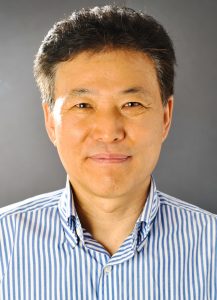 |
Young Rhee (South Korea) – PhD in philosophy, visiting professor, Department of philosophy, Korea University. President: Korea Association of Philosophical Counseling, Korea Society of Humanities Therapy. Editor-in-chief: Philosophical Practice and Counseling.
Philosophical counseling based on AI (Lecture) I deal with the reason we consider the philosophical counseling based on AI with the focus on caring robot and posthuman society. Being and Relation in the Posthuman Age In the posthuman age, the traditional dichotomies have been collapsing. Especially, the dichotomy between human and machine is gradually disappearing, owing to the technological characteristics of posthuman age such as hyper-connectivity and super-intelligence, and subjects and objects is reciprocally unified more than ever in human history. Now, we are expected to live our lives in a new lifeworld (Lebenswelt) so different from the previous ages, which means that there will be new meanings of life, new criteria for moral decisions, and new existential problems. The purpose of this lecture consists in discussing the mode of caring in posthuman age from a viewpoint of philosophical practice. The lecture proceeds in the following order. First, I review briefly typical three features of posthuman age, such as hyper-connectivity, super-intelligence, and super-human. Second, I discuss important issues of posthuman life occurring from those features: solitude and alienation in hyper-network society, degeneration of human dignity from cyborgnizing human beings, and ressentiment of the not-enhanced. Third, I review pessimistic concerns of Peter Raabe and Lou Marinoff about those features and their solutions to them. Fourth, I focus on the care issue of posthuman age and present my idea, caring by robot. I discuss the mode of caring by robot centered on typical cases and discuss. |
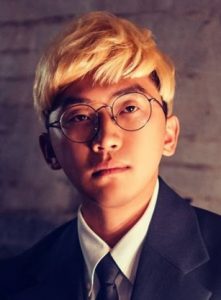 |
Young Ki Kim (South Korea) – MA graduate from Kangwon National University.
Nietzsche’s body philosophy and hip-hop as a way of life (Presentation) According to Nietzsche, art is the product of the inner will and impulses of man and the repetition of the struggle and reconciliation between opposing impulses. Nietzsche explains this by dividing it into Apollonic and Dionysian arts. Unlike Apollonic art, which boils down to light, completeness, and dreams, Dionysian art brings about in imperfectness, impulse, and madness. These two different attributes merge into one through the entertainment of the intoxication, a feature of the art of ancient Greek tragedy. Dionysian art now exercises creative activities that form their own worlds, not just aesthetic experiences. The Dionysian artist exhorts us to have the art of staying in the virtual world and keeping a distance from it at the same time, being in reality and distancing ourselves from reality, and through the practice of that technique, we are able to encounter and transform our own painful realities. For Nietzsche, Dionysian music is expressed with a will, stimulating the human body and mind, making him dance instead of walking and singing instead of talking. I reinterpreted it as a musical genre called hip-hop. The genre of music called hip-hop is similar to Nietzsche’s philosophy of art, especially to Nietzsche’s thinking of music. Nietzsche has seen humans sing and dance to express themselves as members of a higher community and says that this perfection of the world has nothing to do with individual intellectual levels or artistic culture. In fact, one of the biggest characteristics of hip-hop is that everyone is available and there are no conditions needed for participation. Hip-hop is open to everyone and there are no conditions for participation, such as property or cultural level. The participants just get together and express themselves in their own way. In the process of doing hip-hop, participants have a sympathetic attitude toward the pain of each other through mutual understanding across borders, races or rich people. This tells us that hip-hop is not just a musical genre, but a philosophical lifestyle. A Preliminary Study on the Possibility of Integration between Antique Tragedy and Philosophical Counseling (Presentation) Today, modern society is faced with a variety of problems, and philosophy has presented various alternatives to solve real problems. In particular, philosophy counseling, which was newly introduced by Achenbach in Germany in 1981, is a representative example of solving life problems and suggesting alternatives through philosophy, away from the existing theoretical-centered philosophy. However, due to the philosophy’s focus on suggesting alternatives, in-depth consideration of the problem itself has been relatively neglected at some point. Before presenting an alternative, in-depth consideration of the problem will be made to present a more appropriate solution to the problem. This is because the answer to philosophy, which is presented without a proper understanding of what the problem is, will have no meaning. So what is the most important life problem we face today? The debater considers it pessimism and nihilism. In particular, the suffering of various lives that have approached our daily lives since the emergence of COVID-19 is leading our lives to pessimism and nihilism. So how should we understand these various life pains that come to us? This argument is intended to be carried out through the Attic tragedy in Nietzsche’s “The Birth of Tragedy.” The pessimism and nihilism that Nietzsche tried to say through the “birth of tragedy” Attic tragedy will reveal what pessimism and nihilism are. Furthermore, through Lou Marinoff’s “PLATO NOT PROZAC”, Peter Raabe’s “The Theory and Practice of Philosophical Counseling”, and Kim Sun-Hye’s perspective treatment, we will look at how today’s philosophical counseling perceives life’s pain and problems. Through these discussions, the discussion will examine the possibility of deep consideration of the problem itself and later incorporation of philosophical counseling and Nietzsche’s Attic tragedy. |
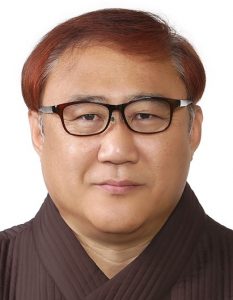 |
Chi Sung Gi (South Korea) – Graduate student of the Department of Philosophy, Kangwon National University. He received a Master’s degree from Andong National University in Korea under the subject of “A Study of the Ideas of shen(神) in the I Ching”. He currently enrolled in the Ph.D program at Kangwon National University in Korea. He majors in Eastern Philosophy. He active as a member of the BK4 (Brain Korea 21) project and the P4C Philosophy Practice Education Research Team, Kangwon National University Philosophy Department.
A study on philosophical counseling techniques using “Book of Changes”, zhòng tiān Qian, and ‘yáo wèi theory’ As a philosophical counseling technique, I will explain using the ‘Hyowi-seol (theory on the place of ‘Hyo’) in “Book of Changes”. As the philosophical counseling research methodology, I had the opportunity to look at Lou Marinov’s ‘PEACE’ method, Kaihoff’s HORIZONT method, and Kangwon University’s Professor Kim Sun-hee’s ‘Perspective Counseling (RUSM)’ method. In “Book of Changes” and ‘Wang Pil Interpretation’, ‘Theory of Chwiui (theory of taking a will)’, ‘Theory of Ilhyo-oriented (theory that one hyo becomes the master)’, ‘Theory of filial piety (theory that filial piety changes)’. There are frameworks for interpretation such as ‘enemy facility (theory that it is appropriate at the time)’ and ‘displacement theory (theory that the seat changes)’. Based on such a framework of interpretation by Wang Pil, he will present his research on the philosophical counseling technique by examining changes according to ‘chance’. |
